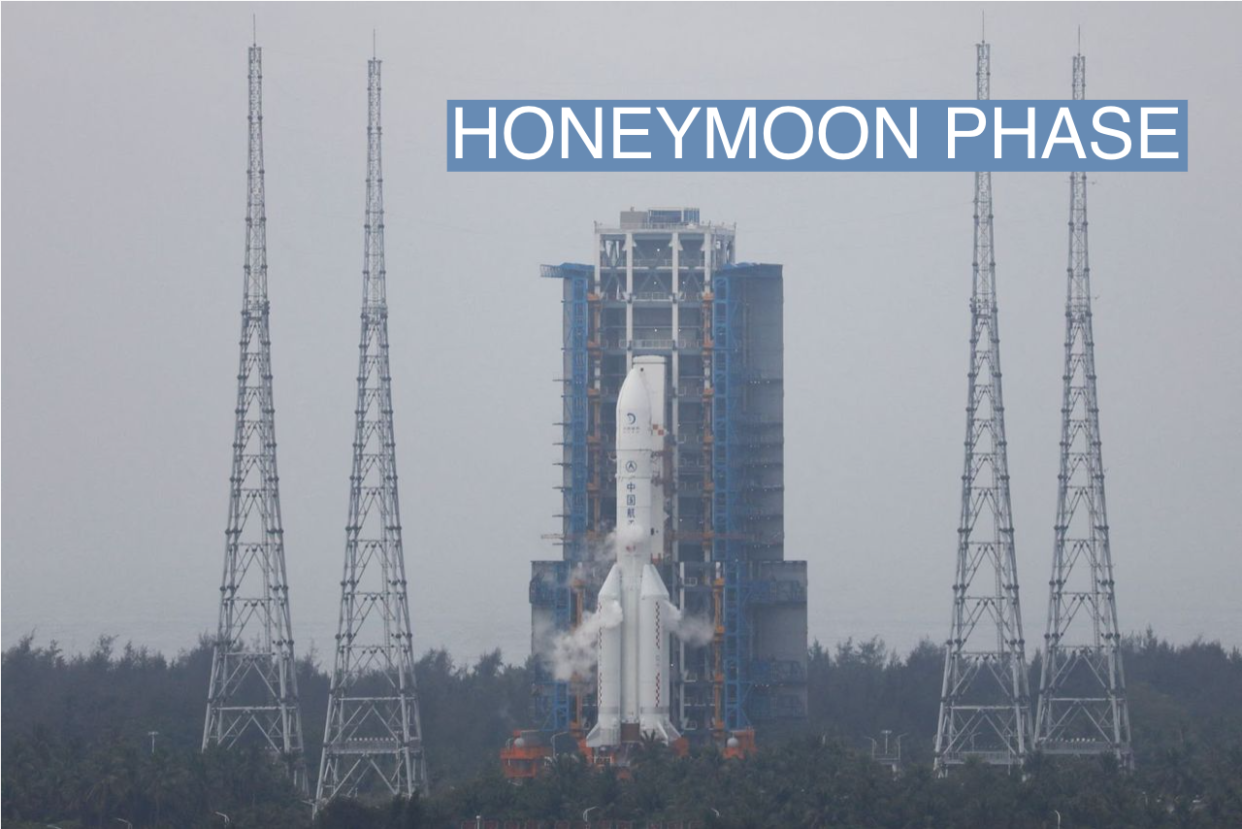China's historic Chang'e 6 moon landing brings 'space race' into sharper focus

Insights from the The Guardian, BBC Global News podcast, and The Conversation
The News
China landed an uncrewed spacecraft on the moon’s far side on Sunday in a landmark mission to collect lunar rock and soil samples and return them to Earth.
It’s the first time any space agency has tried to return samples using remote-controlled spacecraft, as the only other moon rocks scientists have to study on Earth were gathered during the Apollo era, some fifty years ago, by American astronauts.
The historic Chang’e 6 mission — no other country has landed spacecraft on the moon’s far side, and now China has done so twice — underscores China’s power amid the new space race to establish permanent, crewed lunar bases.
SIGNALS
US is concerned about China’s space program
China’s space exploration successes have raised concerns in the US over its wider geopolitical goals: NASA Administrator Bill Nelson has previously warned China’s civilian space progress might conceal a military program and that the US is in “a space race,” echoing the language used in the Cold War with Russia. Of particular worry is the moon: Nelson has said if China gets there first, they could shut out the US. The US and China plan to set up lunar bases and that means they need access to resources, like water. While the international consensus is that no one can claim territory or resources on the moon, that’s never been tested, a reality one public policy professor told The Guardian described as a “wild, wild West.”
More unity than ‘space race’ narrative suggests
While the “space race” narrative has gained momentum in the US, there is still a foundation of international collaboration in space exploration. The European Space Agency, for instance, participated in the Chang’e 6 moon mission. An ESA technical officer told the BBC Global News podcast that it was a “peaceful” mission with a “purely scientific” goal: It’s “a journey that we’re trying to go on together” rather than a race, he said, and it’s positive that “the achievements of one agency or one nation inspire the greater efforts of another.”
Human moon bases may have unintended consequences
Chang’e 6 brings China closer to establishing a human base on the moon, something the US also seeks. While moon bases open new opportunities for science, a human lunar presence may have unintended repercussions, particularly on the far side, which has near-perfect conditions for radio astronomy. Radio astronomy could allow researchers to collect data from black holes and observe the “cosmic dark ages,” the time before stars and galaxies existed. “The rush to build bases on the moon could interfere with the very conditions that make the Moon so attractive for research in the first place,” one astrophysicist warned.

